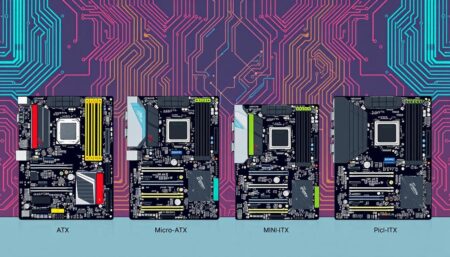When it comes to storage options for your computer, solid-state drives (SSDs) have become increasingly popular due to their faster speeds and reliability compared to traditional hard disk drives (HDDs). However, as SSD prices have dropped and storage capacity has increased, some consumers may be wondering if investing in a 1TB SSD is actually worth it. In this article, we will explore the advantages and disadvantages of a 1TB SSD and help you determine if it is the right choice for you.
What is a 1TB SSD?
A 1TB SSD is a solid-state drive with a storage capacity of 1 terabyte, or 1,000 gigabytes. It uses NAND-based flash memory to store and retrieve data, which is different from the spinning disks of an HDD. SSDs have no moving parts, making them faster, quieter, and more reliable than HDDs. They are also smaller and consume less power, making them an attractive option for laptops and other portable devices.
Advantages of a 1TB SSD
- Speed: One of the most significant advantages of a 1TB SSD is its speed. An SSD can access and transfer data much faster than an HDD, which means that your computer will boot up more quickly, programs will load faster, and files will transfer more quickly. This is especially important if you are a gamer or a content creator who needs to move large files quickly.
- Reliability: Another significant advantage of an SSD is its reliability. Since SSDs have no moving parts, they are less likely to fail than HDDs. This means that you are less likely to lose your data due to a mechanical failure.
- Low Power Consumption: An SSD uses less power than an HDD, making it an attractive option for laptops and other portable devices. This means that you can use your device for longer without needing to recharge.
- Durability: An SSD is more durable than an HDD since it has no moving parts. This means that it can withstand shock and vibration better than an HDD, which is important if you travel with your device.
Disadvantages of a 1TB SSD
- Price: The most significant disadvantage of a 1TB SSD is its price. SSDs are more expensive than HDDs, and a 1TB SSD can be significantly more expensive than a 1TB HDD.
- Capacity: Another disadvantage of a 1TB SSD is its capacity. Although 1TB may seem like a lot of storage, it may not be enough for users who have large media libraries, work with large files, or store data-intensive applications.
- Lifespan: SSDs have a limited number of write cycles, which means that they have a finite lifespan. Although modern SSDs can last for years, they will eventually wear out and need to be replaced.
- Compatibility: Not all computers are compatible with SSDs, so you may need to check if your device can use an SSD before purchasing one.
FAQs
Q1. How long does an SSD last? A1. The lifespan of an SSD depends on how it is used, but most modern SSDs can last for several years before they need to be replaced.
Q2. Is a 1TB SSD enough for gaming? A2. A 1TB SSD should be enough for most gamers, but if you have a large game library, you may want to consider a larger SSD or a secondary HDD for storage.
